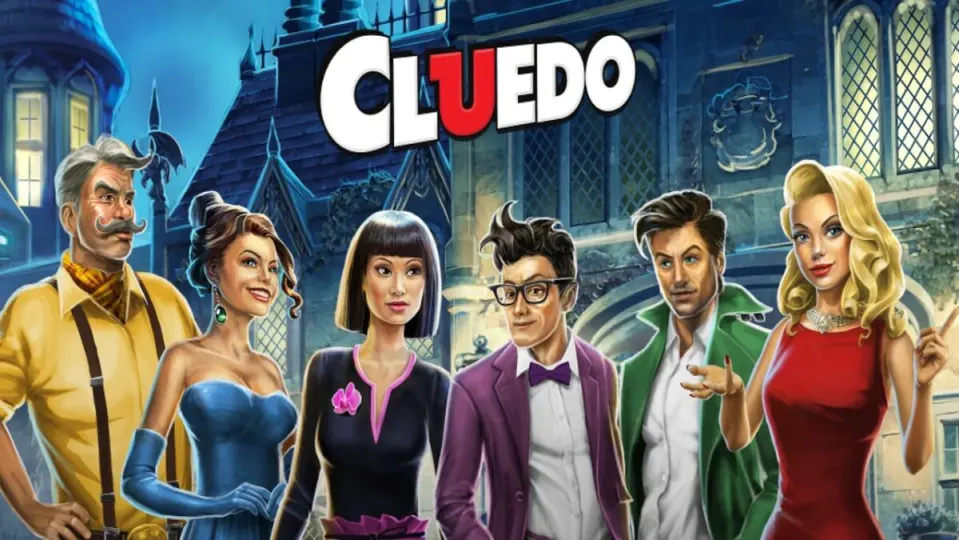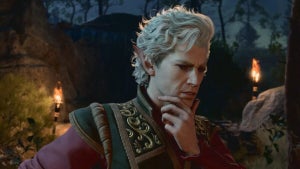Year 1942. Birmingham suffers the bombing of the Nazi Luftwaffe every few years. So much so, that it became the third most bombed British city in World War II after 77 attacks in which 2241 people were killed and 12,391 houses were destroyed. And in the midst of that disaster, Anthony E. Pratt worked in a factory creating tank components, a laborious, repetitive job he hated. Between the war and his tedious job, Pratt escaped in the best possible way: by creating his first board game.
Miss Amapola at the ballroom
Before becoming a tank manufacturer, Pratt was a musician who played in different hotels for rich people where the highlight of those nights in the interwar period was playing murder mystery. Or what amounts to the same thing: discovering who had committed a murder among all those present. Reading the novels of Agatha Christie and Raymond Chandler did the rest: on December 1, 1944, the Briton and his wife Elva, who designed the game board, registered a game called ‘Murder! But the story did not end there… And there were still to be a few unexpected twists and turns.
Shortly after registering it, the couple went to Waddingtons, a board game company (which in 1994 would be acquired by Hasbro) and which was already publishing ‘Monopoly’ in the UK. At that time the game was already basically what we know: a country house with different rooms in which a body is found and all the guests are potential murderers. And of course, only by finding the right clues will the mystery be solved. The Pratts immediately convinced Waddingtons, who agreed to distribute it.

It must be said that Waddingtons changed the game slightly to make it more accessible: from ten characters it went down to six and some weapons were removed, such as the hypodermic syringe or the Irish cane. Anyway, the original ideas ended up appearing in some of the many -many, impossible to follow- versions of the board game.
If you think this is a story of how Anthony E. Pratt got rich, think again. When, at last, ‘Cluedo’ was released in 1949, the results in a post-war UK were rather muted. The company told the Pratts that it wasn’t selling very well, especially in America, and they bought the world rights from them for £5,000 (the equivalent of about £100,000 today). Neither of them would ever see any money from ‘Cluedo’ again and their name would become anonymous.

In 1996, to celebrate 150 million units sold, Waddingtons (now part of Hasbro) tried to find Pratt to celebrate with him. He had died two years earlier, at 90. Since receiving the money for ‘Cluedo’ he opened a candy store and worked as a paralegal in complete anonymity. And yet his game has prevailed until now.
Sherlock Clue
In its American release, ‘Cluedo’ (there ‘Clue’) got a deal with Arthur Conan Doyle’s heirs to advertise itself as “the great new Sherlock Holmes game”, even though the detective was neither there nor expected (later, all said and done, he would be the protagonist of several TV commercials in the 70s and 80s, when marketing was in full swing).

Since then, ‘Cluedo’ has been everything. Literally, everything. Starting, of course, with the board game itself with its different meanings: with VHS incorporated in the ‘Atmosfear’ style, in a children’s version where you can find out who hid the lost puppy, card games and even adaptations of ‘The Simpsons’, ‘Friends’, ‘Rick and Morty‘ and ‘Brooklyn 9-9’. Hasbro even came up with a kind of new version that came to replace the classic (‘Cluedo: Discover the secrets’) and was such a failure that two years later they were forced to withdraw it from the market. They should have learned from the history of New Coke.
‘Cluedo’ has had a collection of 18 children’s novels, two comic miniseries, a musical and a play that could end in 216 different ways depending on what the audience decided, a television series, competitions in Canada, Australia, UK, Germany, Italy, Portugal, France and Scandinavia, a dozen video games and, of course, the movie.
Today, ‘The Game of Suspicion’ (the Spanish title of ‘Clue’) is considered a cult classic, but in 1985 it was a resounding box office failure despite its curious way of taking people to the cinema three times: each screening offered one of three different endings (which today have been compiled into the complete film). There was a fourth ending planned, but it seemed to be of poor quality and was never screened.
Ah: in the end, ‘Cluedo’ had its version of Sherlock Holmes when Hasbro decided that there would be no franchise without its version of the game. To sell 150 million copies you have to know how to do it, right? And now, do you know who killed our victim today? Where? and with what weapon?


